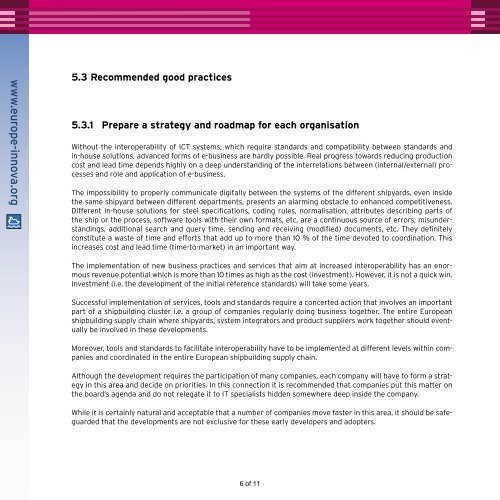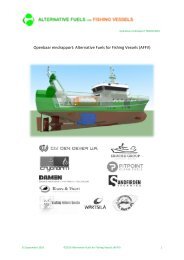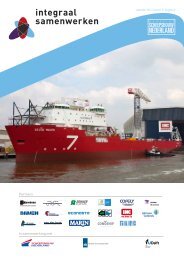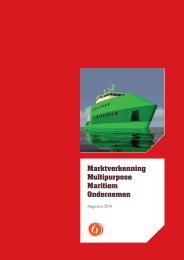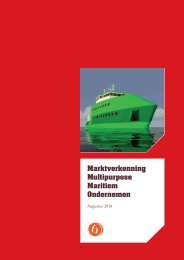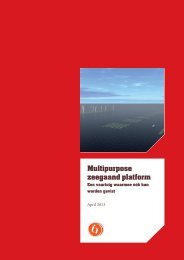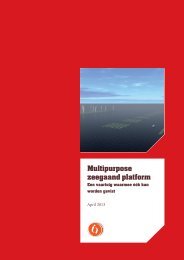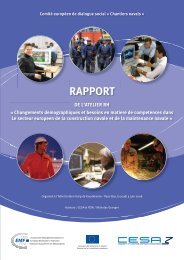Euromind (2009)
Creating an innovative European Open Maritime Industry through facilitating integration of standards into new business practices & services.
Creating an innovative European Open Maritime Industry through facilitating integration of standards into new business practices & services.
Create successful ePaper yourself
Turn your PDF publications into a flip-book with our unique Google optimized e-Paper software.
www.europe-innova.org<br />
Stand-Inn<br />
Innovafun<br />
Steppin<br />
Depuis<br />
<strong>Euromind</strong><br />
BioHealth<br />
5.3 Recommended good practices<br />
5.3.1 Prepare a strategy and roadmap for each organisation<br />
Without the interoperability of ICT systems, which require standards and compatibility between standards and<br />
in-house solutions, advanced forms of e-business are hardly possible. Real progress towards reducing production<br />
cost and lead time depends highly on a deep understanding of the interrelations between (internal/external) processes<br />
and role and application of e-business.<br />
The impossibility to properly communicate digitally between the systems of the different shipyards, even inside<br />
the same shipyard between different departments, presents an alarming obstacle to enhanced competitiveness.<br />
Different in-house solutions for steel specifications, coding rules, normalisation, attributes describing parts of<br />
the ship or the process, software tools with their own formats, etc, are a continuous source of errors, misunderstandings,<br />
additional search and query time, sending and receiving (modified) documents, etc. They definitely<br />
constitute a waste of time and efforts that add up to more than 10 % of the time devoted to coordination. This<br />
increases cost and lead time (time-to-market) in an important way.<br />
The implementation of new business practices and services that aim at increased interoperability has an enormous<br />
revenue potential which is more than 10 times as high as the cost (investment). However, it is not a quick win.<br />
Investment (i.e. the development of the initial reference standards) will take some years.<br />
Successful implementation of services, tools and standards require a concerted action that involves an important<br />
part of a shipbuilding cluster i.e. a group of companies regularly doing business together. The entire European<br />
shipbuilding supply chain where shipyards, system integrators and product suppliers work together should eventually<br />
be involved in these developments.<br />
Moreover, tools and standards to facilitate interoperability have to be implemented at different levels within companies<br />
and coordinated in the entire European shipbuilding supply chain.<br />
Although the development requires the participation of many companies, each company will have to form a strategy<br />
in this area and decide on priorities. In this connection it is recommended that companies put this matter on<br />
the board’s agenda and do not relegate it to IT specialists hidden somewhere deep inside the company.<br />
While it is certainly natural and acceptable that a number of companies move faster in this area, it should be safeguarded<br />
that the developments are not exclusive for these early developers and adopters.<br />
6 of 11


